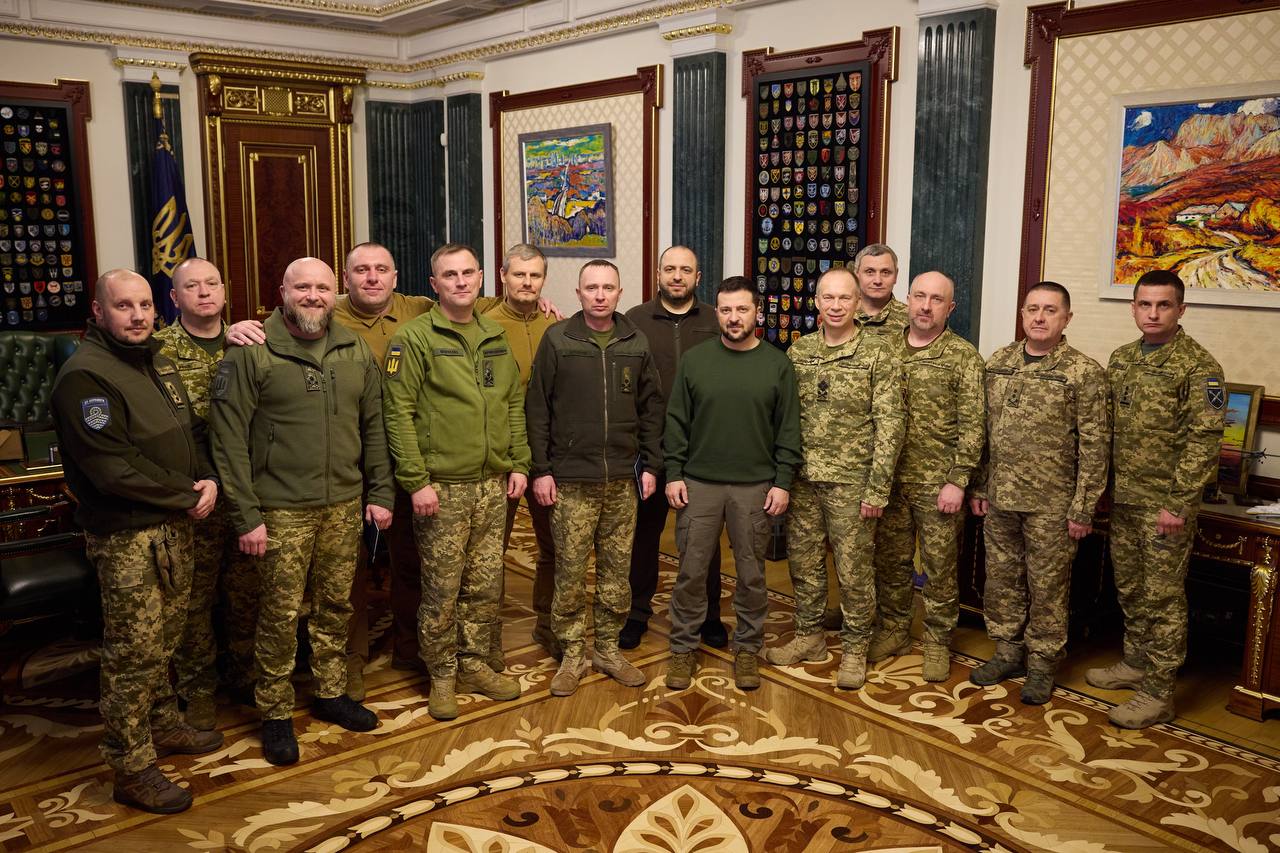Daily Flyer - February 11, 2024
A voice of Ukraine to the West

Russia increasingly deploys armored groups to storm Avdiivka
To storm Donetsk Oblast’s Avdiivka, Russia is increasingly deploying armored groups alongside its assault infantry units, as reported by Oleksandr Tarnavskyi, the commander of Ukraine's Tavria group fighting on the southeastern front lines, on February 11.
Despite the intensified Russian attacks on Avdiivka since October 2023, with the aim of encircling and capturing the city, Ukrainian soldiers are steadfastly maintaining their defense. They actively counter the Russian aggressor and capture fresh forces entering the battle, Tarnavskyi wrote on Telegram.
Avdiivka, located just kilometers away from Russian-occupied Donetsk, remains a strategic target for Moscow. The situation in the area, according to Tarnavskyi, "remains tense but controlled," and Russia's goal to capture Avdiivka and Novomykhailivka, along with the territories lost last summer, has not changed. In the past day, Russia reportedly lost 458 troops, 25 units of various military equipment, and 139 drones. The Russian military also conducted 25 airstrikes, two missile strikes, and 57 assaults, according to Tarnavskyi. The Tavria group of Ukraine's military is engaged in some of the most intense fighting on the front, including the ongoing battle for Avdiivka.
Russian drone attack hits infrastructure site in Mykolaiv
As a result of Russia's overnight drone attack on February 11, an infrastructure site caught fire in Mykolaiv, causing damage to residences, a gas pipe, and a private vehicle, and injuring at least one person, according to regional and military officials. The attack, which lasted through the night, specifically targeted infrastructure, including agricultural assets along the Black Sea coast, as reported by Ukraine's southern group of forces. Ukrainian air defenses were actively engaged, firing on Russian drones for 5.5 hours.
The Ukrainian Air Force reported shooting down 40 out of 45 Shahed drones, including both 131 and 136 models. Eighteen drones were intercepted over Mykolaiv Oblast. Ukrainian forces successfully shot down drones over various regions, including Kyiv, Vynnytsia, Zhytomyr, Kirovohrad, Cherkasy, Odesa, Dnipro, and Kherson oblasts. The frequency and scale of Russian drone and missile attacks against Ukrainian cities have escalated since the beginning of 2024, with January witnessing some of the most significant attacks since the invasion's onset. Russia's acquisition of North Korean ballistic missiles and production of Iranian-designed drones is contributing to the increased intensity of these assaults.
Poll: 26% of Ukrainian teenagers want to move abroad after finishing school
According to research conducted by the Ukrainian polling agency Vox Populi and commissioned by the charity Saved, one in four Ukrainian school students expresses a desire to move abroad after completing their education. The study surveyed 1,397 school students aged 14 and older, 1,288 parents, and 1,141 teachers across regions in Ukraine, with 33-36% of students in front-line regions. The poll revealed that 53% of students want to remain in Ukraine after finishing school, while 23% are inclined to change their place of residence. Meanwhile, 26% expressed a desire to move abroad, and 20% have not yet decided where to live.
Among school students in urban areas, 31% expressed a desire to move abroad, while in rural areas, the figure was 16%. Differences were observed between front-line regions and others, with 81% of students in front-line areas learning online due to the security situation, while 64% in western Ukraine studied "mostly or always" online. Teachers in front-line regions reported an increased workload, with 87% noting the impact of the Russian invasion, including security challenges and the need for additional time to provide psychological support to students. Overall, 63% of teachers across Ukraine stated that the academic performance of their students had declined during the invasion. While 83% of teachers and 70% of parents felt optimistic about the future, only 52% of teenagers themselves felt optimistic, and 24% expressed pessimism about Ukraine's future. The study also highlighted gender differences, with 32% of girls expressing a need for psychological or emotional support, compared to 20% of boys.
Zelensky announces more changes to military leadership

President Volodymyr Zelensky announced additional changes to Ukraine's military leadership on February 10, naming two new deputies for Commander-in-Chief Oleksandr Syrskyi and three new deputies for Chief of the General Staff Anatolii Barhylevych. Following the appointment of Syrskyi to replace General Valerii Zaluzhnyi on February 8 and Barhylevych to replace Lieutenant General Serhii Shaptala on February 9, Zelensky continued the restructuring. The move follows reports of disagreements between Zelensky and Zaluzhnyi, with Zelensky expressing a need for "fresh energy" in the leadership.
The newly appointed deputies include Colonel Vadym Sukharevskyi, commander of the 59th Separate Motorized Infantry Brigade, who will focus on unmanned systems and drone development. Colonel Andrii Lebedenko was named another deputy commander-in-chief with a focus on innovation and the technological aspect of the army. Zelensky also appointed three deputies for Barhylevych: Volodymyr Horbatiuk, Oleksii Shevchenko, and Mykhailo Drapatyi. Horbatiuk will ensure that all headquarters have a comprehensive understanding of the front, Shevchenko will focus on logistics, and Drapatyi will be responsible for the preparation and high-quality training of the military. Zelensky emphasized the importance of implementing the real combat experience of commanders and units for the success of Ukraine's Armed Forces.

